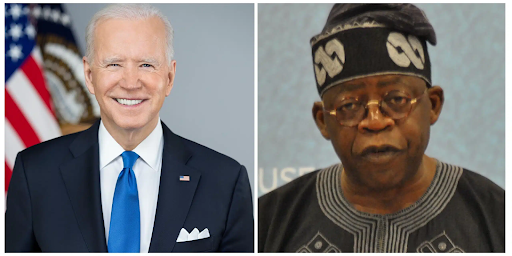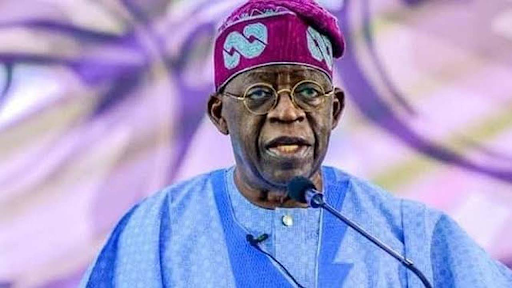
Nigeria’s President Bola Tinubu is getting ready for a meeting as he prepares to engage with the U.S. President Joe Biden during the United Nations General Assembly in New York next month. The news was announced by his spokesperson on a Saturday adding a layer of excitement to the assembly.
Taking place from September 18 to 26 the U.N. General Assembly in New York holds importance on the diplomatic agenda. Leaders from around the world gather during this event to discuss international matters encompassing peace and security, sustainable development and global collaboration. It serves as a platform for nations to come together to address issues and advance their shared objectives on the stage.
Ajuri Ngelale, Nigeria’s Presidency spokesperson released a statement confirming Tinubu’s acceptance of President Biden’s invitation for a meeting. The invitation itself came from Molly Phee, an U.S. Diplomat who holds the position of envoy and assistant secretary of state for African affairs. Tinubu’s participation in this high level interaction highlights the significance of relations between Nigeria and the United States.

One of the prominent topics likely to dominate the agenda of this meeting is the ongoing situation in Niger. President Tinubu, in his role as the chairman of the Economic Community of West African States (ECOWAS), has been actively engaged in finding a solution to the challenges posed by a recent military junta takeover in Niger. The ECOWAS, a regional organisation comprising 15 West African nations, aims to promote economic integration and stability in the region. Tinubu’s involvement in addressing the political crisis in Niger reflects his commitment to regional stability and his role as a key player in West African diplomacy.
In addition to regional concerns, the meeting between Tinubu and Biden presents an opportunity to discuss broader issues related to Nigeria-U.S. relations. Tinubu has been a vocal advocate for increased U.S. investment in Nigeria, a move that could have positive economic implications for both nations. Beyond economic cooperation, the leaders are likely to explore avenues for stronger collaboration in upholding democracy and promoting political stability in West Africa.

Tinubu’s plea for increased U.S. Participation in protecting democracy is in line with the situation in the region. West Africa has experienced a rise in the occurrence of coup incidents over the years, which has raised concerns about political stability and democratic governance. As a leader who has championed bold reforms within Nigeria, Tinubu’s emphasis on democratic values and stability carries weight not only within his own country but also across the broader West African region.
The upcoming meeting at the U.N. General Assembly provides a unique opportunity for President Tinubu and President Biden to engage in substantive discussions on issues that hold significance for both nations. It also underscores the crucial role that diplomacy plays in addressing complex regional and global challenges. As the two leaders prepare to interact on the international stage, the outcomes of their dialogue could have far-reaching implications for Nigeria, the United States, and the entire West African region.





